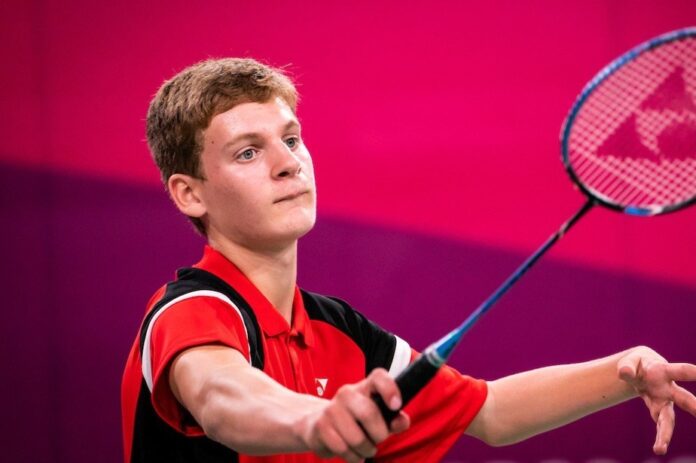William Roussy started playing badminton at age 6, but it wasn’t until age 14 that he made his official debut in Para badminton competition. The reason is quite simple: he did not know that this sport had a version for people with disabilities.
Quickly, he participated in the Quebec and Canadian Championships, to then continue with a tournament in Peru from where he will return with a bronze medal in his suitcases.
Five years later, he is still hungry to shine on international courts and aim for his first participation in the Paralympic Games.
William Roussy plays in the SL3 class which includes athletes with a slight limitation of movement on one side of the body, both legs or the absence of a limb above the knee. In Para badminton, games in this category are played on half the width of a regular court.
In his case, Roussy has limited movement on the left side, both leg and arm, due to his cerebral palsy. By the nature of his disability, he is less mobile in his movements on the left side, except that he trains in a specific way to fill this gap.
“The first in the world in my category has the same disability as me, but on the other side [of the body]. He moves a certain way, so I decided to do the same. And I’m already seeing benefits from this change in my footwork and positioning on the court. I’m faster than before. »
Knowing the handicap of your opponents is therefore essential in the preparation of the match in order to determine what will be the best ways to take advantage of it.
“When the draws of the tables are known, I will watch the matches of my opponents in YouTube and I analyze them”, continues the player.
The 19-year-old athlete was back home in Maria, Gaspésie, after taking part in a tournament in Sao Paulo last week. It was between two classes at the Cégep de la Gaspésie/Îles-de-la-Madeleine in Carleton-sur-Mer that Sportcom hooked him up for a telephone interview. Roussy had mixed feelings about his performances on Brazilian soil.
In the SL3 singles draw, he posted a record of 2 wins and 1 loss in the pool round. Then, he was defeated 21-17 and 21-15 by Peruvian Pedro Pablo de Vinatea in the first round of the elimination bracket. In the past, the Quebecer had already got the better of this opponent on two occasions, including once in the final of the Pan American Championships last November.
“It’s always very close games. I should have been a little more patient and I made mistakes that I don’t usually make while he didn’t make any. It was his day. When I was patient, that was when I got points,” the humanities student acknowledged.
On a more positive note, he held on to his narrow win against England’s William Smith in three sets of 21-23, 21-9 and 21-19.
In men’s doubles, when he teamed up with Pascal Lapointe (SL4), Roussy and his teammate especially remembered having drawn a set in their backhand of 21-13, 15-21 and 21-5 at the hands of the Indians Umesh Vikram Kuma and Abhijeet Sakhuja, in Group D of the preliminary draw.
If the two Quebecers play together in tournaments, joint training is rarer, because Roussy lives in Gaspésie and Lapointe is in Montreal.
This distance from major centers does not seem to weigh too much on the young man. In fact, residing in a village of just under 3,000 people has its advantages and the community is keen to support its athlete. Maria’s primary school, which is two minutes from his home, is his training site.
“I have the keys to the gymnasium and I can go play when I want,” explains the one who trains under the guidance of Marc-André Boudreau once a week. The other sessions, it is with his father Georges that he does them in order to put into practice the advice given by Boudreau.
As for the other Quebecers present in Brazil, Pascal Lapointe stopped in the preliminary round of the SL4 table.
Anthony Vibol Hay and Émilien Langelier suffered the same fate in SH6 singles, as well as in men’s doubles where they were paired.
Same scenario for Vibol Hay in mixed doubles where he teamed up with the Peruvian Andrea Montoya Castañeda.
Para badminton made its debut at the Paralympic Games in 2021. Manitoba’s Olivia Meier was the country’s only representative in Tokyo. It remains to be seen whether there will be more Canadians in Paris next year.
Roussy is currently 11th in the world rankings in his category, which allows him to have his pass for level 1 tournaments reserved for the world top-12 and which offer more generous points.
His fate for a place at the Games is now in his hands and will be determined in the months to come.
“It will be very hard!” They take six [per category], but you can have dreams and maybe realize them one day. »















